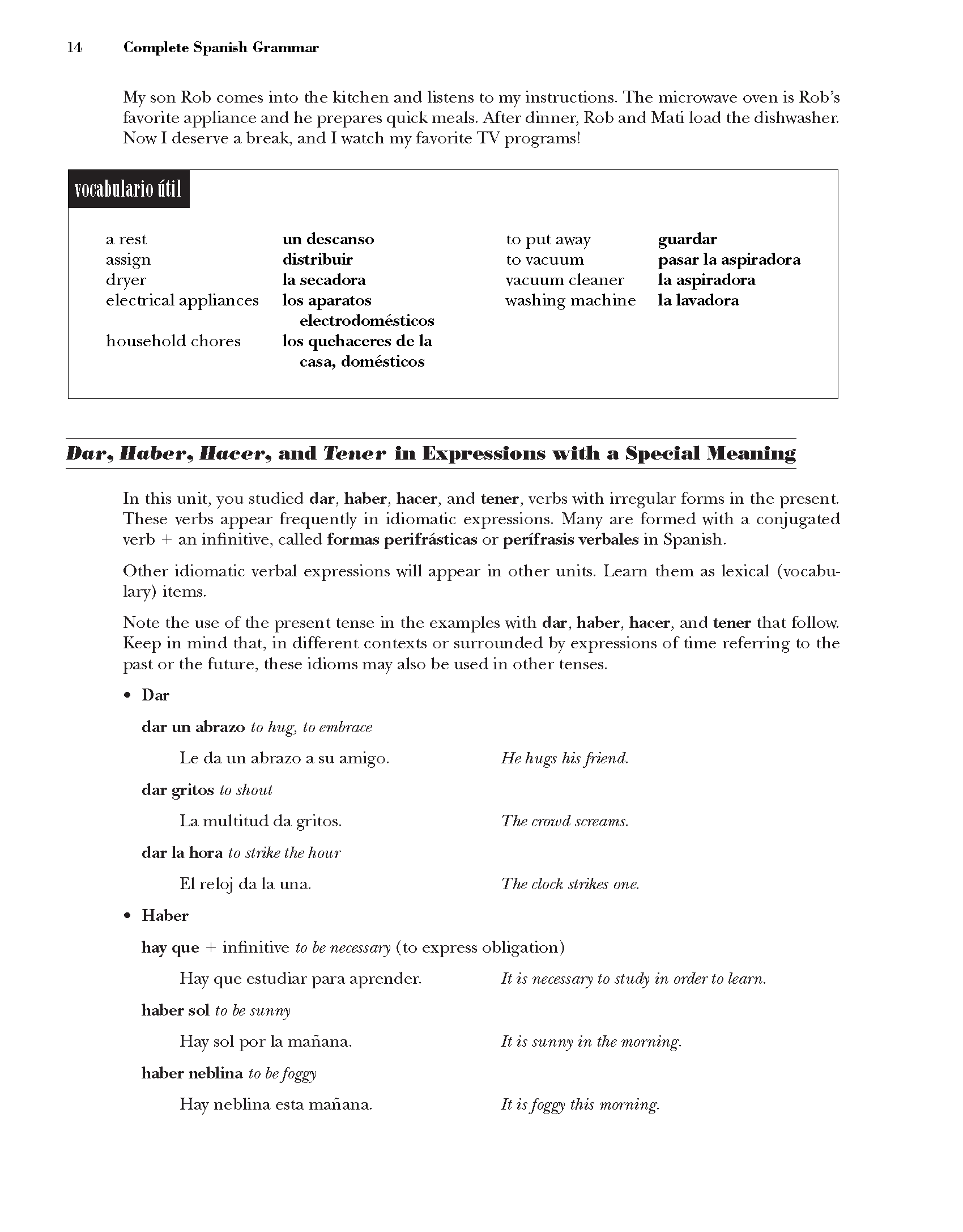CSG025

14
Complete Spanish Grammar
My son Rob comes into the kitchen and listens to my instructions. The microwave oven is Rob’s favorite appliance and he prepares quick meals. After dinner, Rob and Mati load the dishwasher. Now I deserve a break, and I watch my favorite TA7 programs!
a rest assign dryer
electrical appliances household chores
un descanso distribuir la secadora los aparatos
electrodomesticos los quehaceres de la casa, domesticos
to put away to vacuum vacuum cleaner washing machinę
Dar, Hacer, and Tener in Expres$ions with a Special Meaning
In this unit, you studied dar, haber, hacer, and tener, verbs with irregular forms in the present. These verbs appear frequently in idiomatic expressions. Many are formed with a conjugated verb + an infinitive, called formas perifrasticas or penfrasis verbales in Spanish.
Other idiomatic verbal expressions will appear in other units. Learn them as lexical (vocabu-lary) items.
Notę the use of the present tense in the examples with dar, haber, hacer, and tener that follow. Keep in mind that, in different contexts or surrounded by expressions of time referring to the past or the futurę, these idioms may also be used in other tenses.
• Dar
dar un abrazo to hug, to embrace
Le da un abrazo a su amigo. He hugs his friend.
dar gritos to shout
La multitud da gritos. The crowd screams.
dar la hora to strike the hour
El reloj da la una. The clock stńkes one.
• Haber
hay que + infinitive to be necessary (to express obligation)
Hay que estudiar para aprender. It is necessary to study in order to learn.
haber sol to be sunny
Hay sol por la mańana. It is sunny in the morning.
haber neblina to be foggy
It is foggy this morning.
Hay neblina esta mańana.
Wyszukiwarka
Podobne podstrony:
CSG187 176 Complete Spanish Grammar Guarden los libros ya. Pu t the books away imm
CSG099 88 Complete Spanish GrammarThe Coiiiniands in Reflexlve Construetions In the previous example
CSG065 54 Complete Spanish Grammar Gertain expressions of time stress the customary or repetitive na
CSG147 136 Complete Spanish Grammar 13-4ejercicio En espańol. Use the present subjunctive in the dep
CSG187 176 Complete Spanish Grammar Guarden los libros ya. Pu t the books away imm
CSG197 186 Complete Spanish Grammar 1. Don’t play bali! Play (tocar) the piano. _
CSG309 298 Complete Spanish GrammarOther ]egative Expres$ions Some of the words you have studied in
CSG327 316 Complete Spanish Grammarejercicio Escribe en espańol. 1. Va of the popu
więcej podobnych podstron